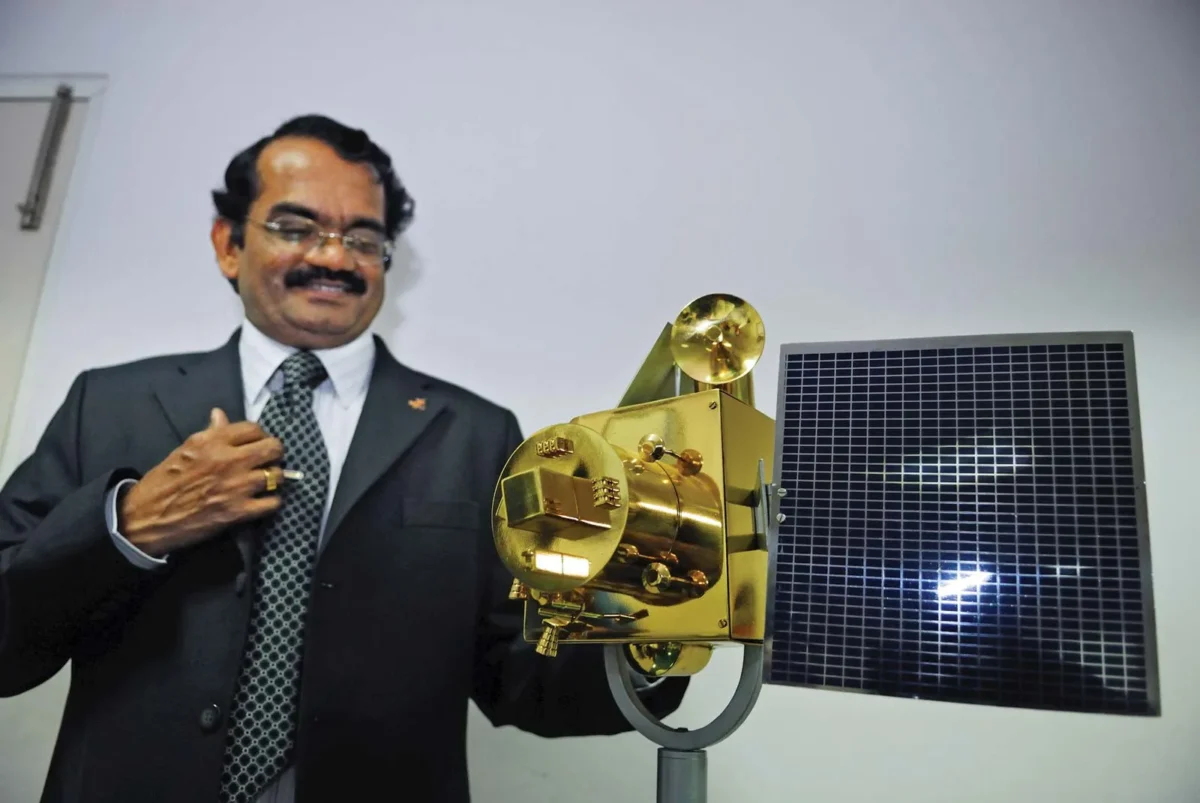Mylswamy Annadurai, who is popularly also known as the Moon Man has been an integral part and instrumental on his work on the Chandrayaan-1 mission ,that also marked India’s first lunar mission and is now in talks for his approach of integrating space technology with healthcare. He has played a pivotal role at the Indian Space Research Organisation.
Mylswamy Annadurai was the program director for Chandrayaan-1 mission as well as the Chandrayaan-2 mission and also for the Mars mission. He has also been awarded with the Padmashree award and has made a remarkable journey at ISRO.
He has almost completed his 40 years tenure at ISRO and is now envisioning integrating the space technology in order to leverage the Indian Healthcare system and make a mark in it as well.
Mylswamy Annadurai on Healthcare system
In a recent interview with IndiaToday ,he mentioned that he now wants to leverage India’s healthcare system all across and improve it in all aspects so that everybody can avail medical facilities in best possible ways ,by merging it with the best space technology that we now have
Particularly he mentioned that the need to provide proper and best healthcare for astronauts in space is what is the need of the hour. Typically he talked about the robotic surgery that was a healthcare advancement and a necessity in space that was developed for astronauts and now it has equally become beneficial and has the ability for transforming healthcare on our planet as well.
Designed for the space needs and astronauts initially, Robotic surgery in its initial days faced quite a lot of developmental challenges that eventually led it to be developed and utilised for the healthcare industry.
He further added that there are so many applications and light weight materials developed for space and are being used in Healthcare systems such as infant incubators and artificial limbs.

Evidently his experience with space technologies and remote operations during space missions is typically relevant and he has drawn parallels by operating lunar systems from the earth as well as the possibilities of conducting remote robotic surgeries.
He says that satellite technology plays a very crucial role in data retrieving, corrections and remote understanding and this is exactly what can be applied in the Indian Healthcare industry.
Mylswamy Annadurai said that he received permissions and support from the organisation that he is working with and that he will explore similar applications in the Indian Healthcare system as well.
He further added saying that this could bridge the gap between healthcare systems at rural and urban areas and the people at rural areas will receive better healthcare facilities thanks to the technology integration. The patients who actually need to receive quality healthcare will be able to connect to and receive healthcare from top medical specialists of metropolitan areas.
He also highlighted on the fact that Artificial Intelligence will also play an important role in Indian Healthcare very soon with its added medical benefits. It will definitely enhance diagnostics as well as medical procedures in India.
Artificial intelligence can assist for making real time decisions during surgery ,anomaly detection and real time images also. Mylswamy Annadurai suggested that Artificial Intelligence along with the medical specialities can make surgeries easier relatively and also lead to timely interventions in remote areas that need urgent care and attention.
The key challenges that he also mentioned was the dependence on imported medical equipment in India and its reliability. He said that nowadays the specialists have a closer collaboration with the technologists in order to develop solutions that are cost effective.
Mylswamy Annadurai says that when it comes to machines, reliability and cost effectiveness is what one should strive for and with such a thing we would definitely be able to provide healthcare facilities to all those areas and parts of India that are lacking in it.
The country can definitely create instruments that can be made in India by understanding what the Indian Healthcare system exactly needs.



